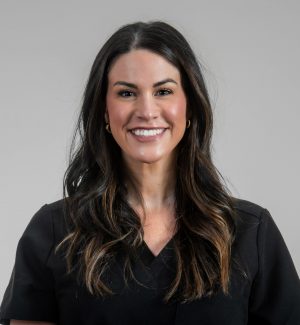Having a panic disorder typically causes a person’s world to cave in on them because they feel frightened about having a panic attack at any given moment. The only way to help them recover is by attending panic disorder treatment.
Serenity Grove understands the intricacies and challenges of living with panic disorder. We created a program that provides high-quality care on a residential or outpatient basis. Our caring and compassionate staff provides multiple levels of care that meet each person where they are in terms of their treatment needs. Let us help you disarm the power that a panic disorder has over you and hit the reset button on your life.
To learn more about our anxiety disorder treatment in Georgia, call us at 844.904.3485.
What is Panic Disorder?
Panic disorder is a mental health disorder that causes a person to constantly live in a state of anxiety and fear a panic attack could happen at any minute. The individual has recurring panic attacks, sometimes with a known trigger, and sometimes out of nowhere. A variety of psychological and medical symptoms occur that cause them to feel out of control and often in danger.
Healing from this challenging mental illness requires attending a licensed and effective program for panic disorder treatment.
Types of Panic Disorders
Panic disorders fall under one of two categories. Some people experience the disorder along with agoraphobia, while others do not. Agoraphobia causes a person to fear certain locations and events and avoid going to them out of fear of having a panic attack. Many people with agoraphobia do not leave their homes for extended periods.
There are different types of panic disorders. A person entering treatment will be evaluated to see which type they have. The types of panic disorders include:
- Panic disorder
- Generalized anxiety disorder
- Phobias
Signs and Symptoms of Panic Disorder
A person in need of panic disorder treatment will experience two types of signs and symptoms. Physical symptoms include:
- Rapid heartbeat
- Lightheadedness
- Dizziness
- Feeling like passing out
- Shallow breathing
- Tightness in the chest or chest pains
- Nausea
- Vomiting
- Numbness in feet or hands
- Sweating
- Trembling
Emotional symptoms can include:
- Feeling panicky
- Wanting to flee the scene
- Feeling frozen
- Anxiety
- Fear of dying
- Fear of being crazy
What Does A Panic Disorder Feel Like?
Panic disorders cause a person to feel like they never really have control of their lives. Even when they feel calm and everything seems fine, a sense of panic can break out at any moment.
Living with a panic disorder often means the person isolates because they don’t want to risk becoming panicky in front of family, friends, or strangers. This can lead to symptoms of depression because of how limited the person’s life becomes. It can feel scary to even tell loved ones they are struggling or admit they need to find panic disorder treatment.
Recommended: Is Panic Disorder a Disability?
Panic Disorder vs Anxiety
Anxiety happens to everyone from time to time. An anxiety disorder causes a person to feel anxious at a higher level and more often than most people. It does not include having panic attacks or the physical symptoms that happen with them.
Panic Disorder vs Generalized Anxiety
Similar to Generalized Anxiety Disorder (GAD), the individual feels overwhelmed with anxiety much of the time. Their anxiety is about everyday life events and causes them great difficulty in their ability to relax. Panic disorder causes panic attacks that include physical manifestations of the panic felt.
Panic Disorder vs Panic Attacks
Panic disorders cause a person to have regular panic attacks. Panic attacks themselves can happen to people that do not qualify as having a panic disorder.
Causes of Panic Disorder
Panic disorder can come from the old nature vs. nurture debate or a combination of those reasons. Genetics can play a major part in developing a panic disorder because genes for mental health disorders are often passed down through the family tree. A person can also develop a panic disorder after suffering physical or sexual abuse, childhood trauma, an accident, or going through a major life transition.
Also, if a person never learned to deal with challenging life events and emotions as they happen, they may not have healthy coping skills and instead end up feeling panicky during all sorts of situations.
Mental Health Treatment for Panic Disorder
Panic disorder treatment can be done on different levels of care. Each person is evaluated to understand which level of care matches their specific needs. The types of programs include:
The range of time spent at any of these levels of care depends on the length and severity of the person’s panic disorder.
How Is Panic Disorder Treated?
Panic disorder treatment includes attending different types of therapy to help the individual gain control of their symptoms. Common types of therapy used include:
Why Serenity Grove?
Serenity Grove believes each person we treat has their own unique story to tell. We discuss what brought them to a place of anxiety ruling their lives and strive to resolve any past issues that contribute to feeling panic. Our staff of licensed and talented mental health counselors understand how panic feels and go to work each day with the goal of helping the people they treat learn ways to relax and get back in control. We partner with each person we treat to help them set and meet their treatment goals.
Meet Our Experts
Begin Panic Disorder Treatment Today
Do you feel ready to seek panic disorder treatment and drastically change your quality of life? Serenity Grove understands the courage it takes to reach out for help, and we provide the structured care needed to take away the power that panic has over your life. Our staff of skilled and experienced mental health experts guides you through the therapies that provide specific ways to minimize your symptoms and give you more control.
Contact us today to find out more about how our programs work. We can provide an assessment on the phone and offer specifics about how much your insurance plan will cover.




